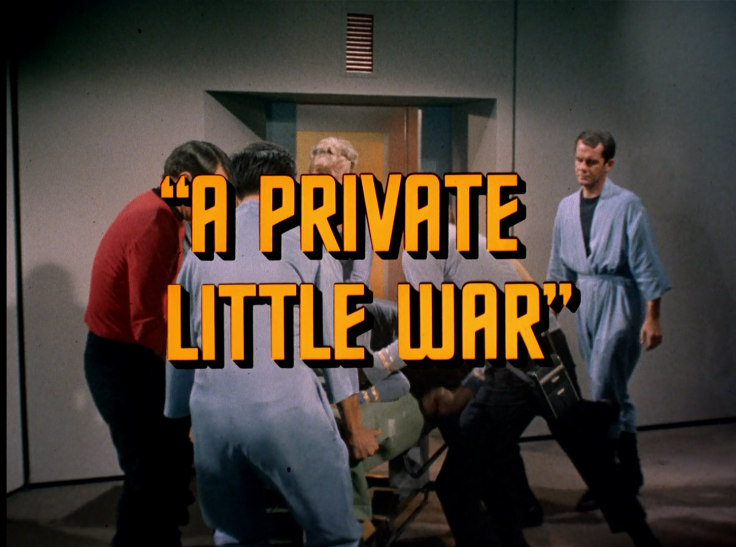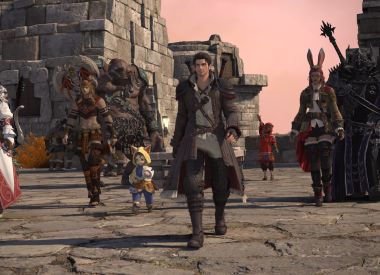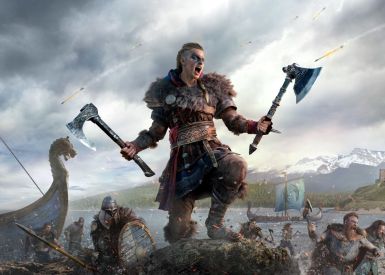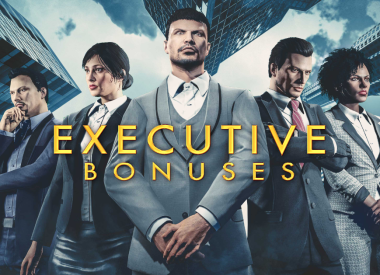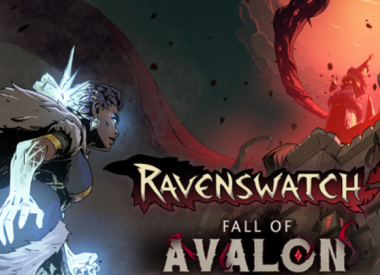As the Sept. 24 premiere of Star Trek: Discovery approaches, Player.One will profile essential episodes to watch for a better understanding of the characters, species and history informing the first Star Trek series in over a decade.
Star Trek has always confronted contemporary politics directly. Beginning Sept. 24, Star Trek: Discovery will have the opportunity to follow in that tradition and enter an argument on the state of the world in 2017, the first Star Trek show in that position since 2005. May it do a better job than Star Trek: The Original Series second season episode “A Private Little War.”
Written by Don Ingalls as an explicit allegory to the ongoing Vietnam War, the 1968 episode fails the issue, both from hindsight and in its day, muddling its message as mainstream opposition to the invasion soured.
Kirk returns to Neural, the “peaceful and tranquil” “Garden of Eden” planet where he studied abroad, only to find his beloved hunter-gatherers under attack from another tribe, armed with advanced flintlock rifles. Just as Kirk suspects, the Klingons are behind it, violating treaties to prop up a puppet leader modeled after Ho Chi Minh, described in the teleplay as having “an innate cruelty… the look of a man whose senses are not offended by death.” What choice does Kirk have, he soliloquizes, but to arm his friends and maintain the “balance of power”? There’s no way we’re going to let the Russians roll over our buddy.
Kirk: Bones do you remember the twentieth-century brush wars on the Asian continent? Two giant powers involved, much like the Klingons and ourselves. Neither side felt it could pull out.
McCoy: Yes, I remember. It went on bloody year after bloody year.
“A Private Little War” arrives at a tragic conclusion: it’s horrible, but we have to keep killing. In its late sixties context, “A Private Little War” implies keeping the pressure on the Russians may be “the trickiest, most difficult, dirtiest game of them all, but the only one that preserves both sides.”
Portraying the Klingon-backed side of the Neural civil war as the puppet government precisely inverts the situation in Vietnam in 1968. The puppet was always the U.S.-backed government in South Vietnam, especially after the CIA-backed assassination of President Ngo Dinh Diem destroyed even the pretense of a viable democracy. On the other side was Ho Chi Minh, just as much a nationalist as a communist, who would have rode a populist wave into democratic power had the national referendums promised in the 1954 Geneva Accords ever taken place.
Star Trek was hardly alone in adopting the civil war framing, which positioned the United States as staunch allies of an equally valid South Vietnamese government, rather than foreign invaders with a hankering for brinkmanship with the Soviet Union. Narratives about our good intentions or reluctance to commit violence endure even decades later, in movies and documentaries like the 18-hour Ken Burns and Lynn Novick series The Vietnam War, currently airing on PBS.
It seems Ken Burns' Vietnam doc will not be framed as a US war of aggression but something that just sort of happen https://t.co/G0c8zFmPNT
— Adam H. Johnson (@adamjohnsonCHI) May 29, 2017
Had “A Private Little War” come earlier in Star Trek’s second season, it would have aligned perfectly with the mass media perspective. Prof. Daniel C. Hallin’s survey of TV coverage found nearly 80 percent of on-air editorial comments between 1965 and 1967 were favorable to President Johnson’s execution of the Vietnam War. But “A Private Little War” aired in February 1968, just three days after the Tet Offensive, which undermined the government line on the stability of the South Vietnamese government, flipping on-air coverage to a predominantly skeptical attitude.
Star Trek Fact Check documents in incredible detail the writing process, from draft-to-draft, of “A Private Little War,” revealing in-depth discussions between Ingalls, Roddenberry and other Star Trek producers over Star Trek’s message on Vietnam. Producer Gene Coon summed the episode’s position well in his notes on the first draft of the teleplay, writing:
“If we do not play it this way, and it is admittedly the hard way, the Klingons will take over and threaten the Federation, even as the situation is in Vietnam, which is, as I remember, if Vietnam falls all Southeast Asia falls. In this case, if Neural falls, this entire quadrant of space falls. Please let us have Kirk give a logical presentation of his own and the Federation’s dilemma. Yes, it is evil, but we have never been able to figure out another alternative.”
In reproducing the Johnson administration’s public rationale for the war (“Why don’t we follow the Johnsonian line in Kirk’s speech throughout?” Coon writes), Star Trek put itself behind the curve of public conscience on the issue. By the time “A Private Little War” aired, Gallup found 58 percent of the country didn’t share Star Trek’s certainty that Americans must die and kill in Vietnam.
It should be said that there’s a lot more going on in “A Private Little War,” including the Mugato: a gorilla with poisonous claws and a unicorn horn. There’s even a Roddenberry special: the malevolent and sexy vixen whose wicked plan depends upon kissing Captain Kirk.
The content of Star Trek: Discovery’s submission to 2017’s unlimitedly adjectival American discourse will matter, just as it matters that Star Trek blew it on the Vietnam War. But there’s also an undeniable benefit to Star Trek capturing its historical moment, no matter how imperfectly. Star Trek’s pop cultural stickiness is so gratifying in part because it catalogs 50 years of consciously articulated positions on current affairs. Star Trek values are justly beloved, but sometimes inadequate, clumsy, retrograde or simply wrong.
Even with the far more fragmented media environment we have today, Star Trek: Discovery will capture and crystallize some part of our collective selves: our values, good intentions, rationalizations, illusions, self-dealings and aspirations. What will a 2067 audience see in us?
More Essential Star Trek Episodes To Watch Before Star Trek: Discovery
Star Trek: The Original Series “The Cage,” model for DSC protagonist Michael Burnham.
Star Trek: The Original Series “Errand of Mercy,” our introduction to the Klingons.
Star Trek: The Original Series “Journey to Babel,” the first Sarek episode.
Star Trek: The Next Generation "Sarek" and the decline and death of Spock's father.
Star Trek: The Animated Series "Yesteryear" reveals what life was like for a young Michael Burnham as a human on the planet Vulcan.
Star Trek: The Next Generation "Lower Decks" explores stories and characters away from the bridge.
Star Trek: The Next Generation “Rightful Heir” resurrects Kahless, the most important Klingon religious figure.
Star Trek VI: The Undiscovered Country, the best-yet depiction of Federation-Klingon relations.
Star Trek: Deep Space Nine “Trials and Tribble-ations” explores the limits of nostalgia.


